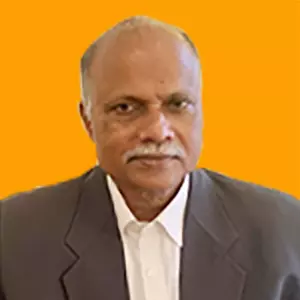
- Home
- India
- World
- Premium
- THE FEDERAL SPECIAL
- Analysis
- States
- Perspective
- Videos
- Sports
- Education
- Entertainment
- Elections
- Features
- Health
- Business
- Series
- In memoriam: Sheikh Mujibur Rahman
- Bishnoi's Men
- NEET TANGLE
- Economy Series
- Earth Day
- Kashmir’s Frozen Turbulence
- India@75
- The legend of Ramjanmabhoomi
- Liberalisation@30
- How to tame a dragon
- Celebrating biodiversity
- Farm Matters
- 50 days of solitude
- Bringing Migrants Home
- Budget 2020
- Jharkhand Votes
- The Federal Investigates
- The Federal Impact
- Vanishing Sand
- Gandhi @ 150
- Andhra Today
- Field report
- Operation Gulmarg
- Pandemic @1 Mn in India
- The Federal Year-End
- The Zero Year
- Science
- Brand studio
- Newsletter
- Elections 2024
- Events
- Home
- IndiaIndia
- World
- Analysis
- StatesStates
- PerspectivePerspective
- VideosVideos
- Sports
- Education
- Entertainment
- ElectionsElections
- Features
- Health
- BusinessBusiness
- Premium
- Loading...
Premium - Events

Indian languages can evolve and acquire complexity only with widespread proficiency in English
Union Home Minister Amit Shah’s statement that a day would come when those who speak in English would hang their heads in shame has met with the predictable responses pointing out English’s utility as an essential link language, within India and for the globalizing world, as the language of knowledge acquisition, and as a competitive edge for India over China. Some have pointed out that English is no longer a foreign tongue; Indians have evolved an Indian version of English that is all our own.
There is no reason for anyone to hang their heads in shame for speaking English. At the same time, there is no reason for anyone to develop a crick in the neck because their English-speaking ability makes them compulsorily look down their nose at the English-deficient masses.
Language of power
English is not just a language of precise and elegant expression that enables communication among linguistically diverse Indians or gives Indian service industry a global competitive edge. English, in India, is the language of cultural hegemony, of power. English speakers use their mastery of the former colonial rulers’ language as a club, with which to hammer uppity heads that rear, spouting Indian languages, and thrust themselves into rarefied spaces meant for the elite.
English must, indeed, cease to be the language of social superiority in India. It must acquire the status it has, say, in the European Union. It should give the speaker functional utility, not presumptive superiority.
Also read: Discussion | ‘English is power’: Rahul slams Shah’s ‘shame’ remark
Make English ubiquitous
The way to strip English of its halo of privilege is to make English ubiquitous. India must vastly enhance the teaching of English in her schools. There is widespread conviction in India that the only way a child would master English is for the child to use English as the medium of instruction, that is, force the child to learn history, geography, maths and science, in a language they learn simultaneously. For children who never hear English spoken at home, even on TV or streamed programming, to be taught in English is to end up learning little of anything, including English.
Children should learn in their own mother tongue, and learn English alongside. This is what happens in Scandinavian countries, where children emerge from school proficient in Swedish, Norwegian, Danish or Icelandic, as well as in English and, for quite a few, German. For them, English is a language of opportunity alone, not of dominance. This is how it ought to be in India as well.
Case of China, South Korea
China and South Korea do very well economically, without hankering after English. Can’t India, too? All Koreans speak Korean; they do not need another language to communicate with one another. All Chinese speak Chinese, although Cantonese can be quite different from Mandarin. More to the point, both thrive making things, while delivering services to those who do not speak the local language is incidental.
India needs a commonly understood link language, or more than one of these, to speak to other Indians. Delivery of services, in which spoken communication is important, is a big part of the Indian economy. English is essential for both purposes.
Few see learning arithmetic or history as an aspirational goal of education; it is but a natural outcome. But English remains an aspirational goal — never achieved for many, because of the way the language is taught in India.
Also read: Hindi vs English vs mother tongue? We should instead embrace multilingualism
Technical terms can be adopted
Can India use Indian languages to teach complex subjects, calling for exactness and continuous upgrade, as knowledge advances at an ever-accelerating pace? Can medicine, engineering and law be taught in Gujarati, Odia and Malayalam? Many might laugh at the thought. As many had, at the idea of students being taught medicine, geometry and philosophy in any European vernacular, like English, French or German, rather than in Latin or Greek.
As education spread to the masses, and healthcare and schooling became commonplace requirements rather than elite luxuries, vulgar (meaning, of the common people) European tongues evolved into languages capable of articulating complexity. But many technical terms were loan words from Latin or Greek, whether pericardium or nemophilia. Indian languages should not contrive to produce native equivalents of commonly used technical terms. They should run with what is used in English, which often have Latin or Greek roots.
Not an aspiration, but a facility
For Indian languages to acquire such complexity and continuous upgrade of knowledge in diverse fields, the populace at large should be well-versed in English, and specialist translators in different registers must become ubiquitous. This calls for near-universal proficiency in English.
For Indian languages to realise their full potential for glory, make effective teaching of English an integral part of schooling, so that English is not an aspiration, but an automatic facility for all high-school graduates.
Also read: Denied parking, Bengaluru techie calls for making English mandatory in India
Death of languages
What if we fulfil the dream of Indian parents to educate their children in the English medium? It is estimated that 40 per cent the world’s 7,000-odd languages, like Welsh and Irish, are dying. Indian languages would join the ranks of the dying. Each language is a treasure trove of the region-specific evolution of human experience.
What about Hindi, as a substitute for English? It is the most recent, and least evolved, of all modern Indian languages. It was prised out of Hindustani or Rekta, the common lingo of all North Indians, by Christian missionaries, who were annoyed by the absence of a specific language into which to translate the Bible for the benefit of North Indian Hindus. Hindu chauvinists appropriated it, to differentiate it from Urdu.
The ubiquitous facilitator
Hindi is no one’s mother tongue. That appellation goes to 40-odd tongues that are today classified as dialects of Hindi, ranging from Awadhi to Western Pahari through Kauravi, Lambadi and Marwari. A language is a dialect with an army and a navy, it has been said. Maithili and Bhojpuri have asserted themselves, the others have not, that is all.
Let all Indian languages — including Hindi, which thrives thanks to the Hindustani of Bollywood — evolve, with English serving as a ubiquitous facilitator.
(The Federal seeks to present views and opinions from all sides of the spectrum. The information, ideas or opinions in the articles are of the author and do not necessarily reflect the views of The Federal)


